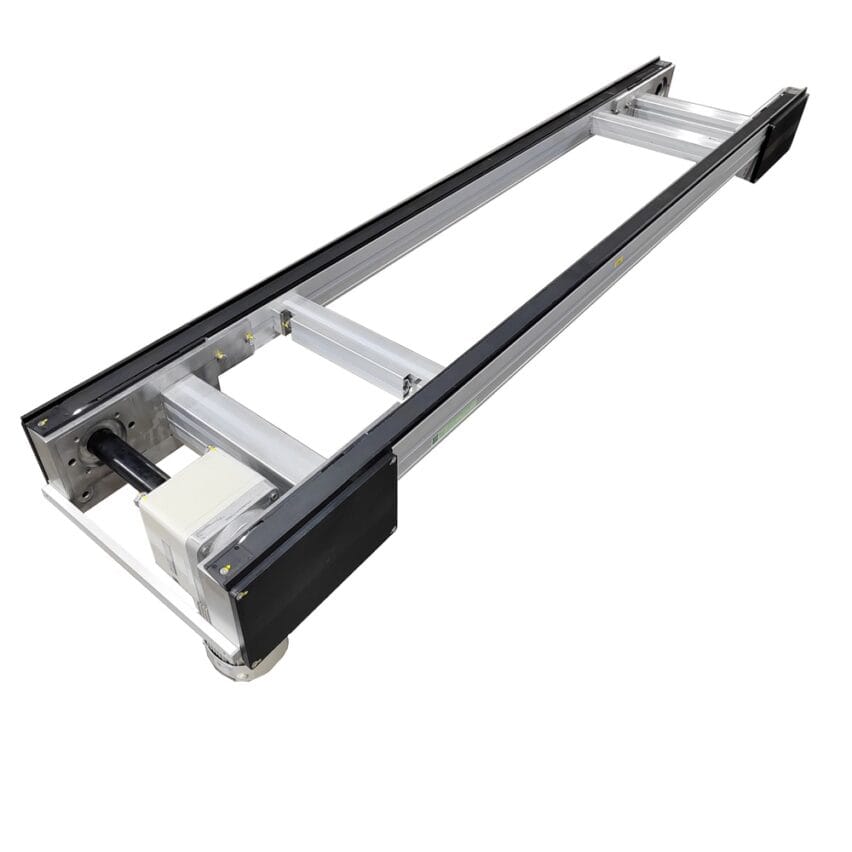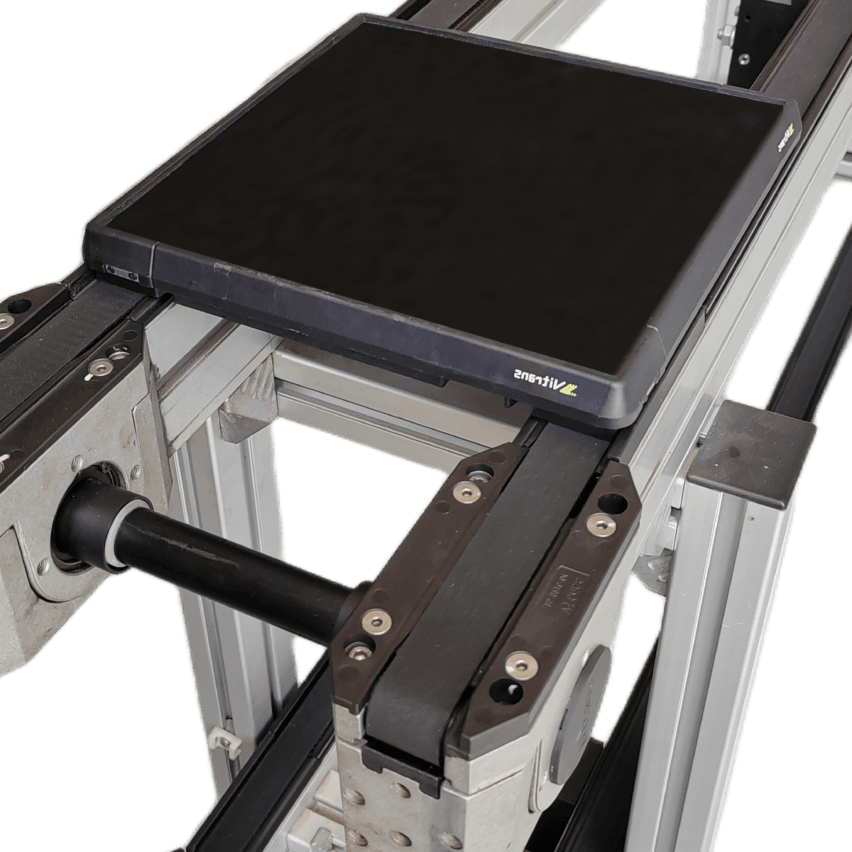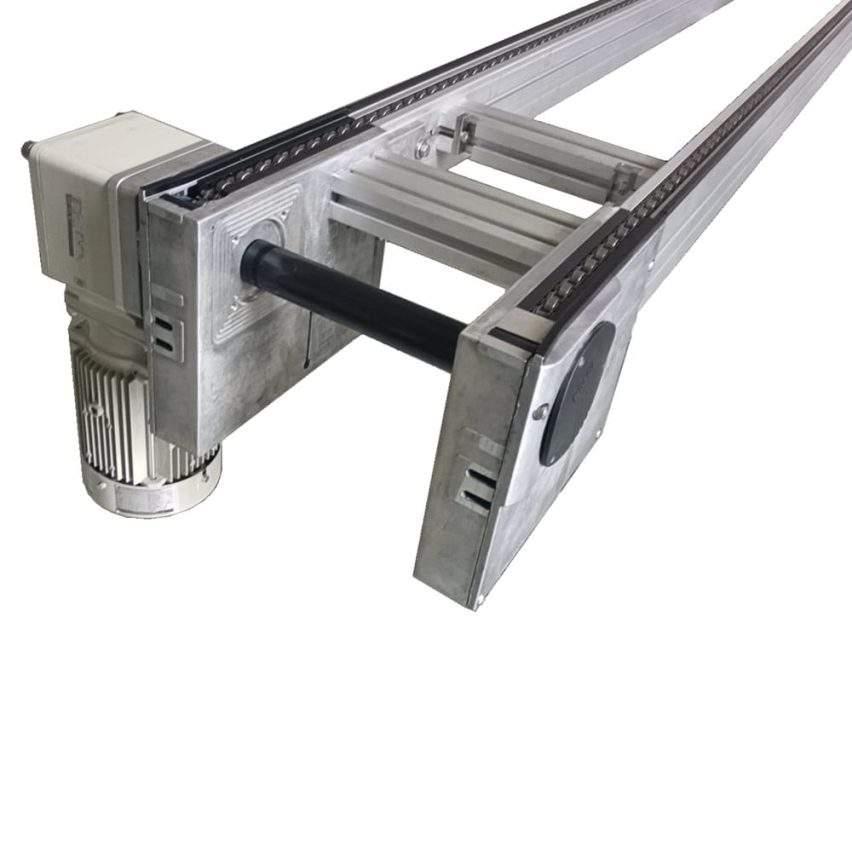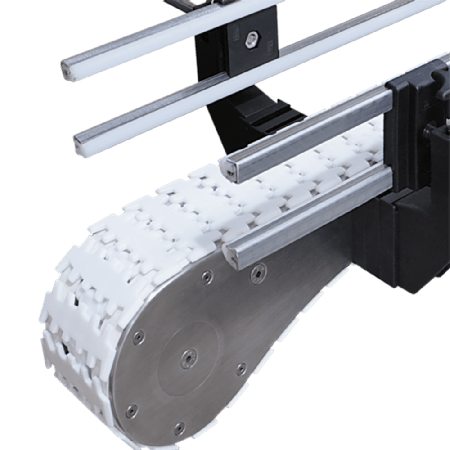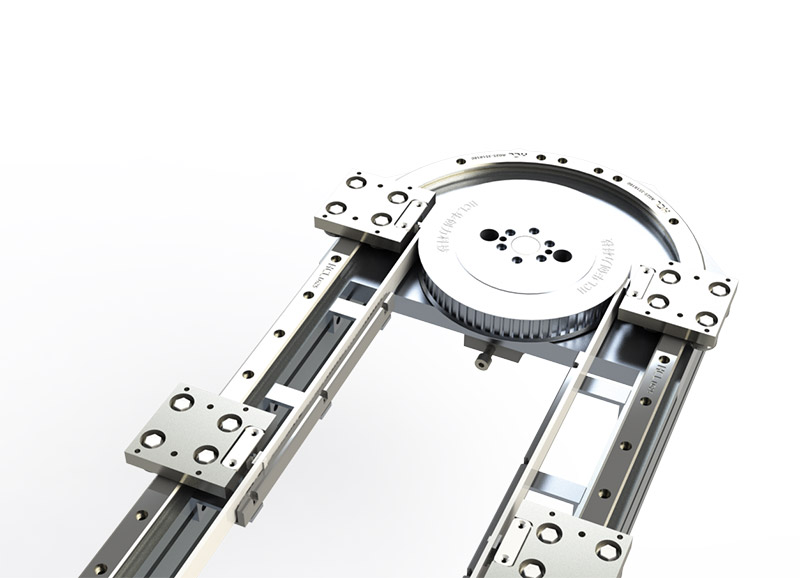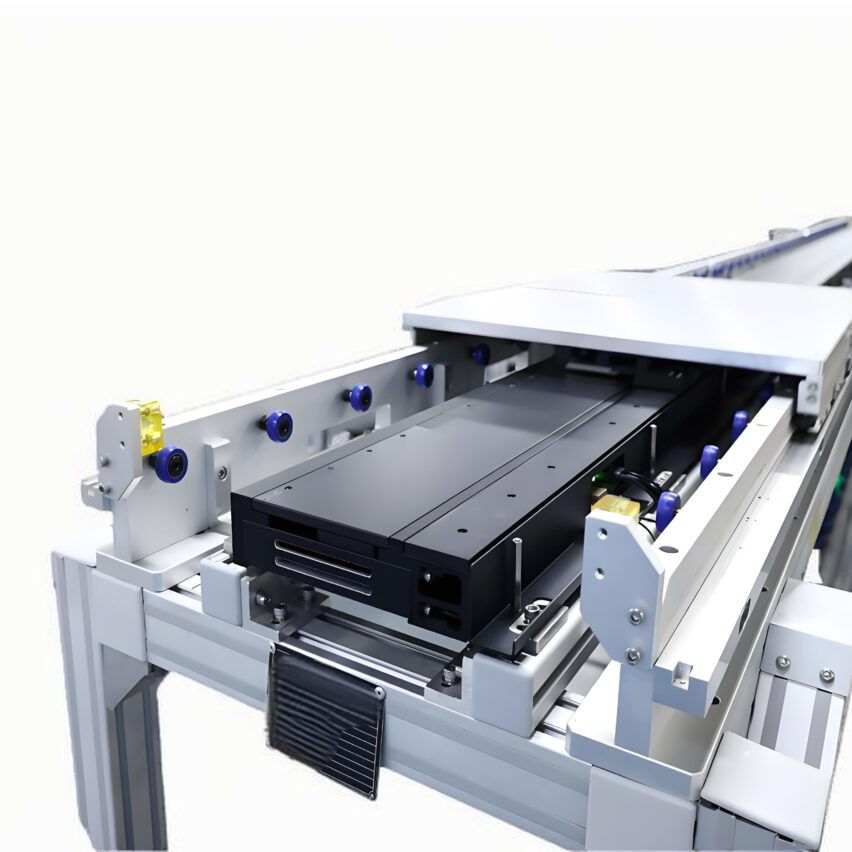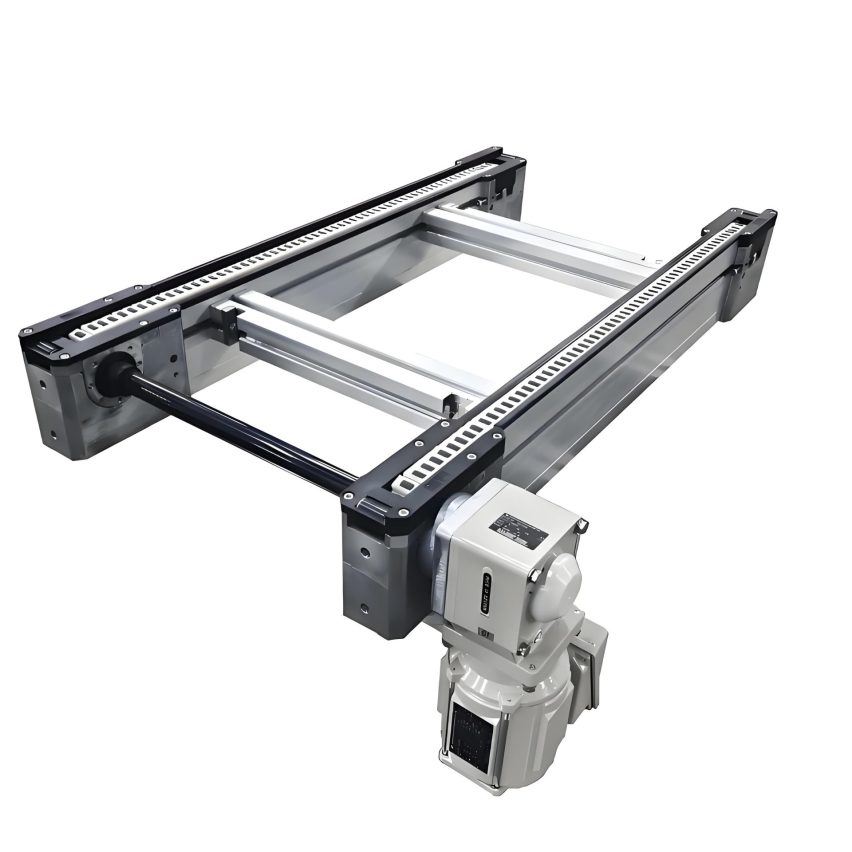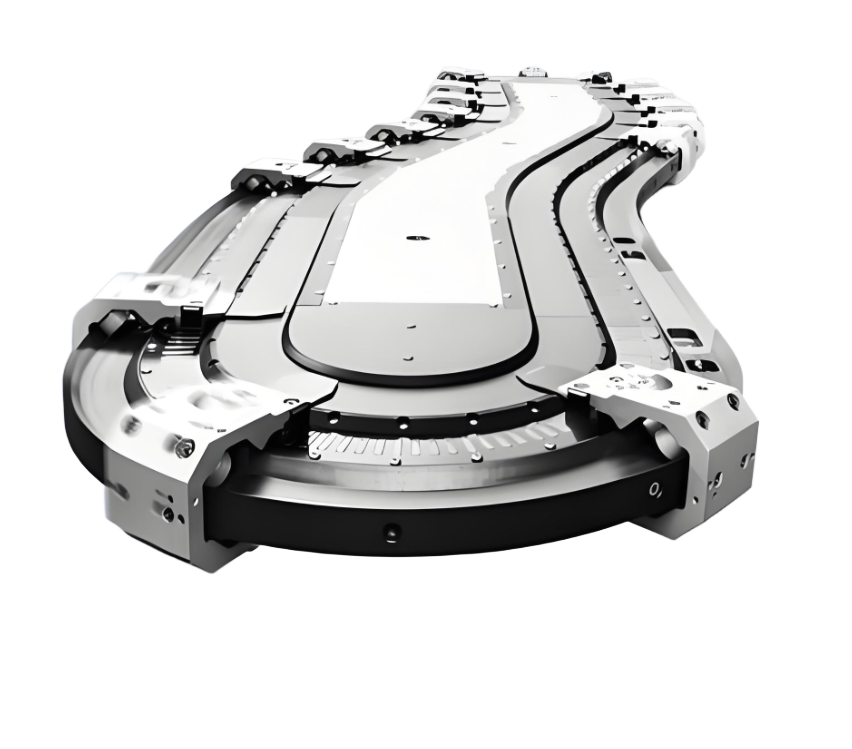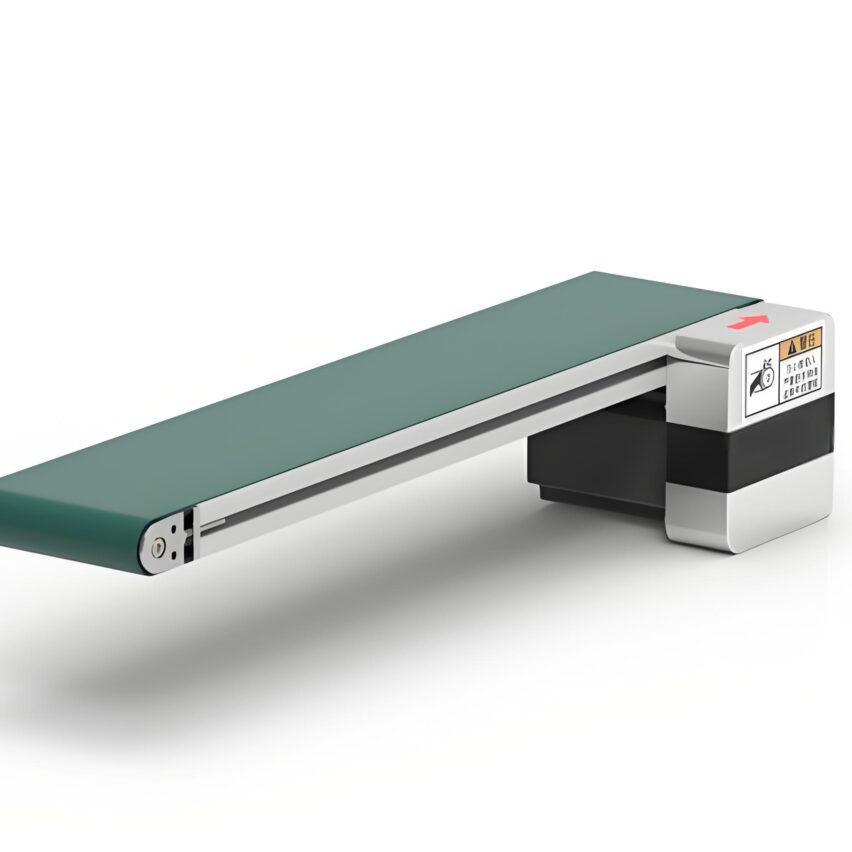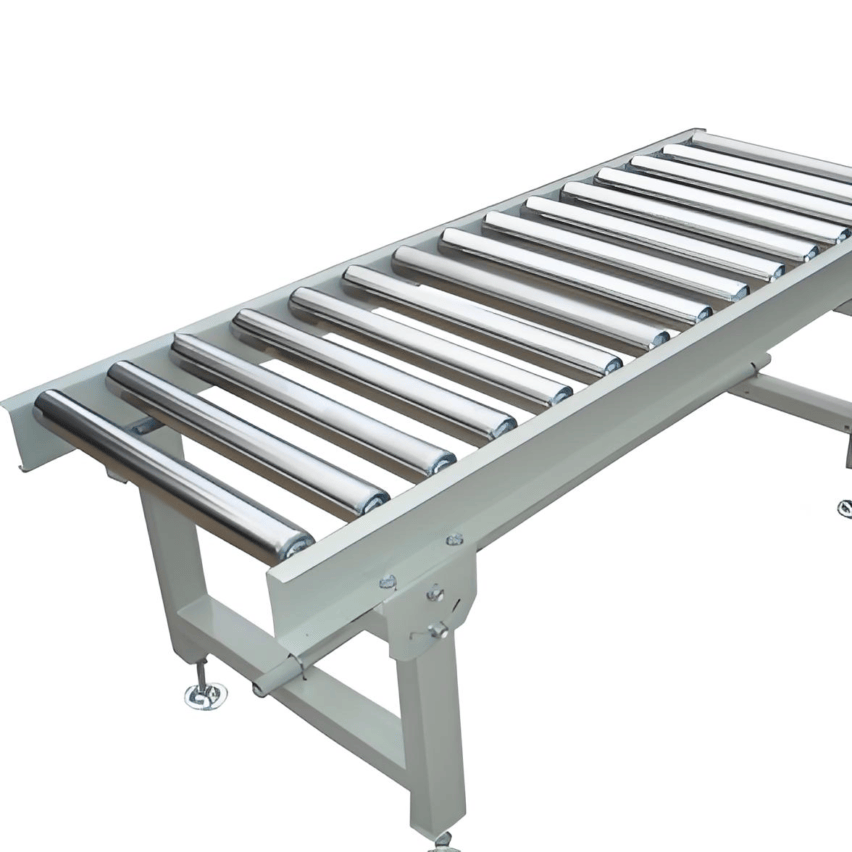I. The core value of the round bar structure and the innovation of the speed doubling principle
The core difference between a round bar speed multiplier chain and a conventional flat chain is thatGeometrical Reconstruction of Roller-Roller.. Conventional chains use plate rollers, while round bar construction replaces the rollers withAlloy steel round bars with a height to diameter ratio of 1:1.5In addition, load equalisation is achieved by means of a three-point contact (round bar-roller-guide). This design offers a triple advantage:
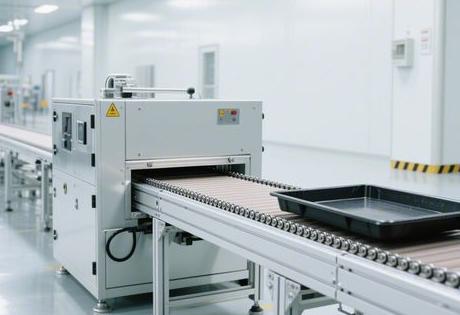
- Increased flexural rigidity: The moment of inertia of round bar section is 40% higher than that of flat plate, and the deformation is ≤0.2mm/m when conveying 2000kg engine block.
- Friction loss optimisation: Contact area reduced by 30%, with surface nitriding treatment (hardness HRC55-60), the coefficient of friction reduced to 0.04
- The growth rate is higher than the breakthrough: The diameter D of the round bar can exceed the traditional upper limit (usually D≤80mm), realising4x speed ratio(Vₐ = 4V₁), the speed of the workpiece can still reach 8m/min under heavy load scenario
personal viewpointThe essence of round bar construction is the engineering wisdom of "geometry for strength". In heavy-duty applications such as automotive manufacturing, impact resistance is more important than light weight - this is the underlying logic of the round bar doubler chain as an alternative to conventional structures.
II. Structural design innovations and heavy-duty adaptation programmes
(i) Enhanced design of core components
- Round bar-roller system
- Round bar material: 42CrMo tempered steel, tensile strength ≥ 1080MPa, surface roughness Ra0.8μm
- Roller configuration: double rows of tapered roller bearings, preload adjustment accuracy ±5N, to avoid off-load stalling
- Guideway Carrying Reconfiguration
- adoptionDovetail groove + wedge-shaped pressLocking (see Fig. 1), 300% improvement in vibration resistance over bolted fixings
- Hardened steel guide rail surface laser quenching layer depth 1.5mm, wear-resistant life up to 100,000 hours
(ii) Special handling of reloading scenarios
| Traditional Pain Points | Round bar chain solutions | Effectiveness Verification |
|---|---|---|
| Excessive chain droop | Twin-axis tensioning + gravity balance wheel | 15m line droop ≤1% pitch |
| Start-up shock | Hydraulic buffer start/stop (acceleration ≤ 0.3m/s²) | Heavy Duty Start-Stop Vibration Reduction 70% |
| Round bar end face wear | End face inlaid tungsten carbide wear ring (2mm thick) | Replacement cycle extended to 3 years |
case (law)After the adoption of round bar speed chain in a heavy truck axle production line, the qualified rate of 2000kg workpiece conveying increased from 88% to 99.6%, and the maintenance cost decreased by 40%.
III. Synergistic upgrading of intelligent control systems
(i) Drive and sensing integration
- Dual closed-loop drive control::
- Speed ring: servo motor + encoder feedback, speed fluctuation ≤ ± 0.05m/s
- Tension ring: Hydraulic tensioning cylinder dynamically compensates for chain elongation with ±20N accuracy.
- Intelligent monitoring matrix::
- Round bar temperature monitoring: real-time detection of overheating points by infrared sensors (threshold 80°C)
- Bias load warning: strain gauge measures the bending moment of the round bar, over the limit value of 10% automatic speed reduction
(ii) Digital twin operations and maintenance platforms
round bar chainVirtual health model, the failure is predicted by the following data:
- Wear prediction: round bar diameter monitoring threshold Δd ≥ 0.5mm triggers replacement warning
- Lifetime assessment: mandatory maintenance at cumulative load integral value ≥ 8000 ton-km
- Energy efficiency optimisation: dynamic adjustment of motor power according to the load curve, no-load power saving rate of 35%
IV. Engineering Adaptation Strategies for Extreme Working Conditions
(i) High-temperature corrosive environments
- Material modification: CrAlN coating on round bar surface (temperature resistance 800°C), alternative to conventional plating
- Sealing innovation: Roller cavities filled with Viton seals + lithium grease to prevent dust intrusion
- real time data: 6000 hours of continuous operation at 150°C in a foundry without failure
(ii) High-precision positioning requirements
- Repeat positioning accuracy guarantee
- Positioning taper holes (taper 1:50) are machined on the end face of the round bar to eliminate cumulative errors in conjunction with guide pins.
- Laser calibration system for real-time correction of track straightness (±0.1mm/m)
- Synchronised control technology
- CAN bus synchronisation of master and slave motors, speed deviation of multi-drive system ≤ 0.1%
V. Maintenance revolution and full life-cycle management
Three Maintenance Paradigm Shifts::
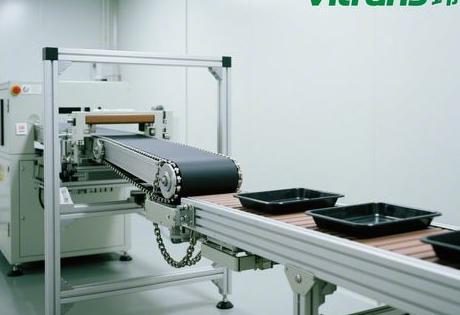
- Predictive Lubrication::
- Analyses grease condition based on vibration spectra, oiling intervals are triggered on demand instead of a fixed 500 hours.
- Automatic switching of high-temperature grease: switch polyurethane grease at 80℃ and enable perfluoropolyether oil at 160℃.
- Modular replacement::
- Round bar quick release design: loosening of 2 compression bolts for single round bar (time ≤ 10 minutes).
- Graduated scrapping mechanism::
- Tier 1 scrap: round bar body (recycling)
- Secondary use: dismantled bearings for light conveying lines
- Tertiary regeneration: chain plates converted to spacers and other accessories
Economic validation: After a steel mill adopted the model, the full lifecycle cost of the multiplier chain dropped by 551 TP3T, and the metal utilisation rate reached 921 TP3T.
Exclusive Technology Foresight: The Disruptive Evolution of the Round Bar Chain
- Smart Material Applications::
- Shape memory alloy (NiTiNOL) round bar test: automatic recovery after overload deformation by heating to 90°C
- Energy Recovery Breakthrough::
- Piezoelectric ceramics embedded in the end face of the round bar: braking energy conversion efficiency up to 151 TP3T to power sensors
- Superconducting magnetic levitation alternative::
- Combination of high-temperature superconducting block (YBCO) and permanent magnet track: frictional resistance reduced to conventional 1%, theoretical speed up to 50m/s
Industry Data: Global Heavy Duty Doubling Chain Market size will exceed $1.2 billion by 2025, of which the share of round bar structure is expected to increase from 15% to 40% -Structural innovations are reshaping the competitive landscape of conveyor technology.
Self-questioning: four core questions about round bar doubling chains
Q1: How does the diameter of a round bar affect the load limit?
The relationship between diameter Φ and allowable load isF_max∝Φ²The Φ50mm round bar can carry 3.2 tonnes, while the Φ80mm can carry up to 8 tonnes, subject to simultaneous reinforcement of the guideway support stiffness.
Q2: Why is 4x recommended for heavy duty lines instead of higher?
Above 5 times the speed, the centrifugal force of the round bar causes the rollers to disengage (Critical speed equation)n_c=1/(2π)√(k/m)), triggering the risk of jumping the chain.
Q3: How to prevent round bar jamming in dusty environment?
Bi-directional scraping design: Round rod spiral groove + reverse airflow (0.5MPa) constitutes a self-cleaning system with a dust residue of <0.1g/m-h.
Q4: Is it compatible with the existing timespeed chain track?
Requires modification of the roller frame mounting interface (in accordance with ISO 4348), the cost of the modification is approximately 30% of the new line, for systems with a pitch of 38.1mm and above.

